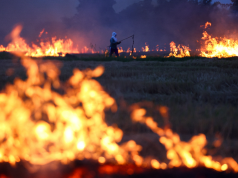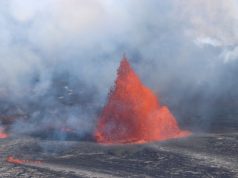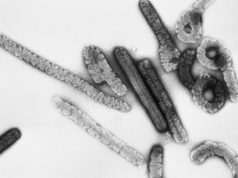A company in Kenya is manufacturing briquettes from human waste and sawdust collected around Nakuru, a town in the Rift Valley region. Edward Baran reports.
It’s a dirty job but somebody’s got to do it.
These workers in Nakuru, northwest of Nairobi, are emptying a truck load of human faeces onto drying beds. The waste is the main material used at this processing site to make these briquettes which locals use to cook and for heating.
It’s left out to dry, then treated in a kiln and carbonised with sawdust at 300 degrees Celsius — a process those behind the project say removes harmful pathogens and, of course, the foul smell.
“You are able to eliminate all the volatile matters, all the harmful gases, and it is at this point that you ensure that your sludge doesn’t smell – it is safe for handling when you are carrying out the other processes,” site manager, Nakuru Water and Sanitation Company (Nawasco) John Irungu, saying.
Molasses is added as a binder, before the mixture is transformed into balls ready for sale at around 50 US cents a kilo.
As well as providing fuel, the project also aims to protect the environment and improve sanitation, especially in poor parts of the town. Only 1 in 4 Nakuru residents are connected to the town’s sewerage system, and waste is often dumped in storm drains and rivers, or buried in low-income areas.
This local trader uses the briquettes to make snacks for sale.
“It doesn’t have an odor, it cooks well, the fire burns well, You are able to cook fast and the briquettes burn for long,” trader, Grace Waka, saying.
The company plans to improve efficiency of its plant, as demand for the briquettes is growing. And they’re also helping to dispose of the large quantities of human waste generated each day.









